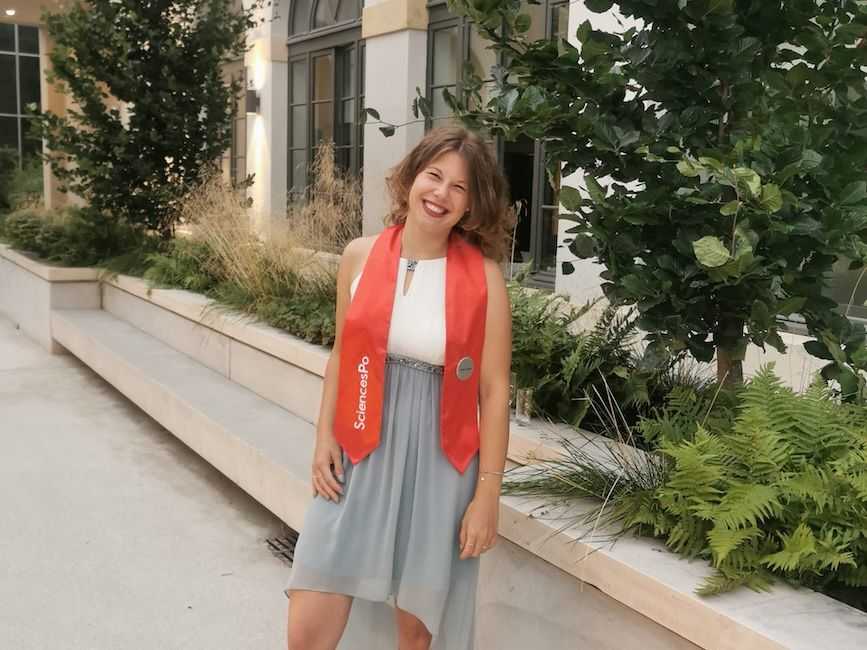Home>Meet the Graduates 2024: Katarina Körner

22.07.2024
Meet the Graduates 2024: Katarina Körner
After graduating from the Maastricht University School of Business and Economics, Katarina Körner joined the Sciences Po School of International Affairs to pursue a master in International Economic Policy… along with the Advanced Certification in Gender Studies. She tells us about how her approach to gender studies matured during her studies.
What brought you to study gender issues?
When I chose the courses for my first master semester at Sciences Po, I learnt that I could pursue a gender studies concentration which sounded like a very interesting option to me. I got particularly excited about the wide range of gender studies courses that the course catalogue had to offer. With an academic background in business and economics and professional experience in the financial services industry, I had, until this point, explored a rather liberal view on feminism. Therefore, I was particularly keen on broadening this viewpoint and gaining more conceptual knowledge on gender studies and intersectional feminism.
Finally, my third-semester internship made me understand that gender can no longer be treated as an 'add-on' to sustainable development, a learning that I strongly emphasised in my Grand Oral presentation. Hence, I am more than grateful that the combination of successful coursework in gender studies and making it the topic of my Grand Oral presentation allowed me to obtain the Advanced Certificate in Gender Studies.
Did any course stand out to you in particular?
In fact, there are two gender studies classes that really moved me: one being “Gender and Conflict” taught by Elisabeth Marteu, and the second “Gender and Somalia” by Judith Gardner. In both courses, I particularly enjoyed the dedication of the professors towards their subject. Without a doubt, they both have great expertise and they managed to create a very stimulating learning environment allowing every member of the class to participate, share and ask questions. Furthermore, I really appreciated how the professors accounted for the different levels of background knowledge in gender studies present in the class. For me, this really created an atmosphere of trust and I was really able to deepen my knowledge on gender issues. Finally, and maybe most importantly, both courses allowed me to explore new angles such as the humanitarian viewpoint on feminism.
What is your favourite memory from your studies?
I really enjoyed the extracurricular guest lectures that Sciences Po organised and gave my best to attend many of them! I was deeply grateful to be given the opportunity to listen to the words, opinions and advice of so many inspiring personalities and leaders. Next to the regular classes, the inputs provided during these events were very enriching and often provided great new and complementary perspectives.
Do you have a piece of advice for upcoming graduates?
Make the best out of the amazing course choice that Sciences Po offers. Ask yourself, which subject did you always want to learn about and choose accordingly. Do not try to 'please' potential future employers with your course choice. The time at university is about you and what you care about. If that means building expertise in a very particular subject, great, if that means exploring and discovering a variety of new fields, great as well. Just make sure to follow your interest. For me, one of the best things about the time at Sciences Po was that I never had the feeling that I was working on duties but rather, that all my course assignments gave the possibility to dive into new, interesting, inspiring topics.
MORE:
- The Advanced Certification in Gender Studies
- The Master in International Economic Policy is offered at the School of International Affairs (PSIA)